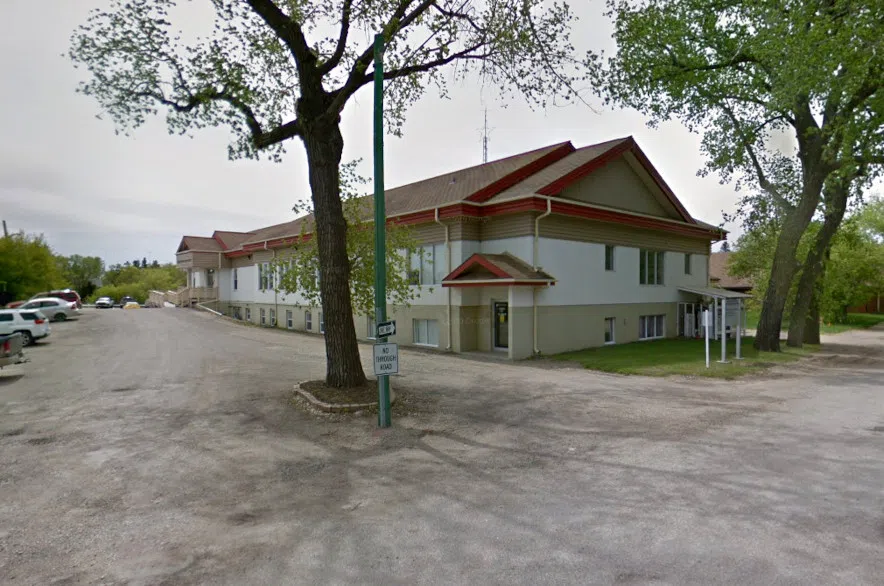A recent labour relations decision has shed light on the staffing conditions in Saskatchewan facilities, how it affects staff and patients and what it takes for the Saskatchewan Health Authority (SHA) to resort to contract workers.
The decision concerns the situation in the Wolseley Memorial Integrated Care Centre – a special care home in the town – in 2022 and early 2023.
According to the facts in the decision, 60 per cent of the staff at the facility were continuing care assistants (CCAs), and while it was already short-staffed, maternity leave, workers’ compensation leave and accommodations and education leave would all come together to create an even worse situation.
At some points in August and September 2022, the CCA complement on duty was half of what it would normally have been. The situation was described in meetings between the facility’s management and CUPE Local 5430 union staff as “very grim” and “bleak” at different points.
The labour decision said it got so bad a bed freeze was implemented, 14 of the 78 special care home beds were closed, and vacation time stopped being granted for CCAs. Staff couldn’t provide “optimal care,” they were frustrated and overwhelmed and talked about unsafe work conditions.
The facility was putting out job postings but said there were so few external applicants many postings were cancelled. In many cases there were applicants but none accepted the positions when they were offered. The facility also discussed potential options with employees and looked for overtime workers at other facilities.
The union representatives made suggestions like recruiting workers from other facilities for shifts, offering a market supplement and relocation allowances and advertising in rural newspapers.
The home did some of these things, like recruiting from other facilities, but others around pay and incentives would require changes to the collective bargaining agreement and couldn’t be done on a local level.
The manager from the facility at the time spoke to the labour board, explaining that given the situation, he could have foreseen a serious staffing shortage in June 2022, but didn’t meet with the union to discuss it until August 2022.
He did say discussions had happened in the workplace earlier. He also agreed the SHA’s job posting system wasn’t optimal and agreed it would have been more proactive to take the steps in June, that the facility did in September.
Eventually, the facility brought up the possibility of bringing in contract workers to fill the positions for several months until some employee leaves ended.
The union wanted the cost information but the health authority declined to provide it because it said it wasn’t contending the contract workers would be more cost efficient. The labour decision said the company that managed the contract workers, Gratitude Health, would be paid $60 an hour for the contract workers, plus additional payment for some meals, transportation costs, travel time and accommodations, while the regular pay for CCAs was between $23.14 and $24.84 an hour.
The labour relations board eventually found that the SHA had violated the collective bargaining agreement with CUPE because it didn’t provide that cost information, it later signed a letter acknowledging the breach and committing to following the agreement in the future.
However, according to the president of CUPE Local 5430, Bashir Jalloh, he hasn’t seen any improvement in the staffing situation since then, and this is a common problem across the province, across more than just CCAs. He said there are similar staffing problems with LPNs, lab services, diagnostics, x-ray, CT and MRI techs as well.

CUPE Local 5430 president Bashir Jalloh says the health authority needs to work proactively on hiring issues. (Lisa Schick/980 CJME)
Jalloh puts much of the problem on jobs in rural areas being posted at less than full-time.
“If want someone to come to Wolseley, you cannot post a part-time job, or 0.2, 0.4, you have to post a full-time job,” he said.
CUPE and the SHA are in the midst of collective bargaining for a new contract – Jalloh said talks have been going on for nearly two years. He said CUPE is pushing for measures which would make some of these hard-to-recruit jobs more attractive – things like a market supplement.
“We want to be able to have a fair wage increase to fight for recruitment, and also the emphasis is going to be about retention because the current staff we have, we have to be able to retain them, have a total compensation for them that is attractive – attract people to stay and also other people to come into the province,” he said.
Jalloh said Saskatchewan has had to compete against Alberta for health-care workers, and now more people are also leaving for Manitoba which just ratified a new, more attractive, contract for its health-care workers.
He explained the province is being too reactive in its hiring practices, which has led to a reliance on contract workers.
“That is also bringing down the morale of (the hired) workers in this situation. It is very, very insulting when you know that people coming to your facilities – you have to train them, orientate them – and you know they are making twice what you are making,” said Jalloh.
He said he understands there might be situations where contract workers are needed to fill a gap, but that it can’t be used as a permanent solution.
“How long are we going to continue to (see) reactive measures after COVID? If we had proper planning our staff situation should start to be stabilizing,” said Jalloh.
The Saskatchewan Health Authority didn’t provide anyone for an interview to talk about these issues but did provide a statement.
It said in the statement that it’s been working “diligently” to make sure the care home is staffed with qualified health-care providers and that there are currently no contract workers in Wolseley.
“The SHA primarily utilizes contract staffing to help minimize service disruptions while recruitment is underway,” said the statement.
The authority said it’s actively working on recruitment and retention in health care and under the provincial government’s action plan, it’s recruiting provincially, nationally and internationally.
Through the government, there is a rural and remote recruitment incentive in place for nine high-priority jobs, including CCAs, that could provide up to $30,000 over three years in return for a return-of-service agreement in a permanent full-time position.
In the town of Wolseley, the health authority said seven people have been hired under the rural and remote incentive, as well as eight internationally education nurses and two health-care workers attracted with bursary dollars.
The health authority also said it’s working with CCAs in Wolseley to get their full certification with the ability to work around their schooling.
Emergency services at the care centre were shut down due to a lack of staff until February last year. However acute services still aren’t available, and the ER is only open 8:30 a.m. to 4 p.m., Monday to Friday.











